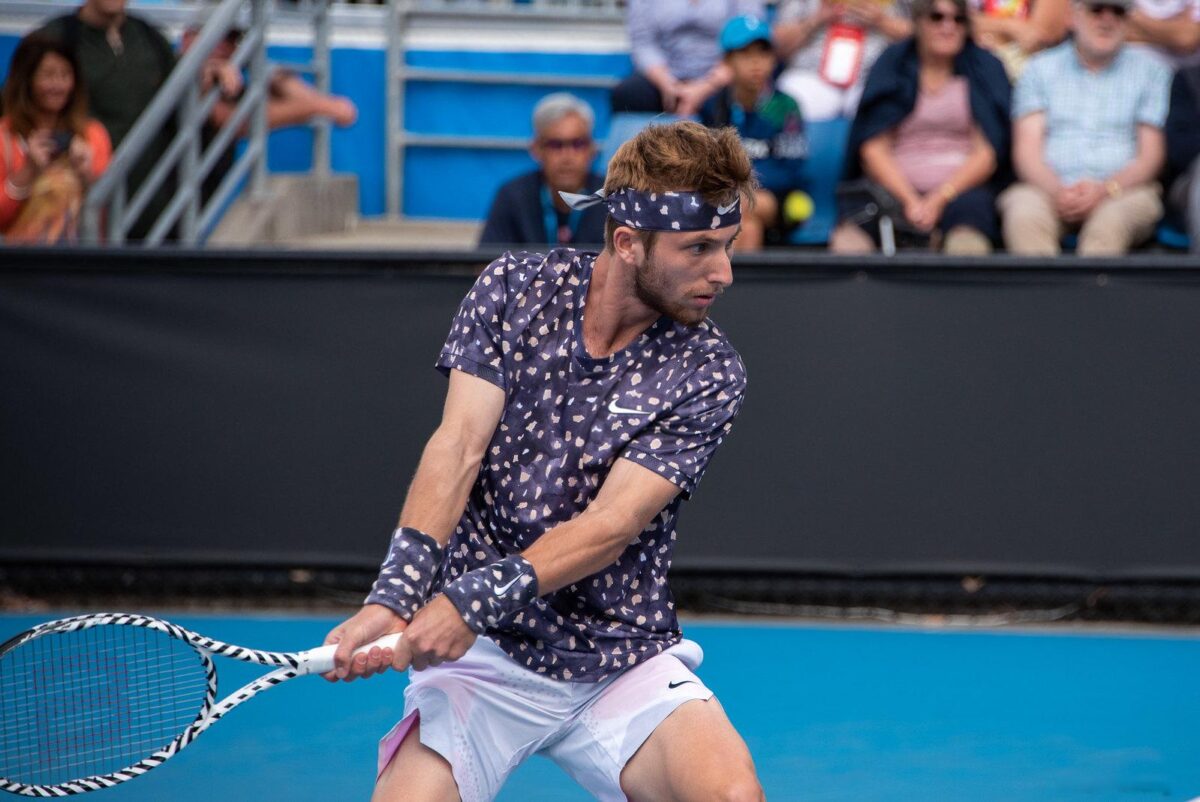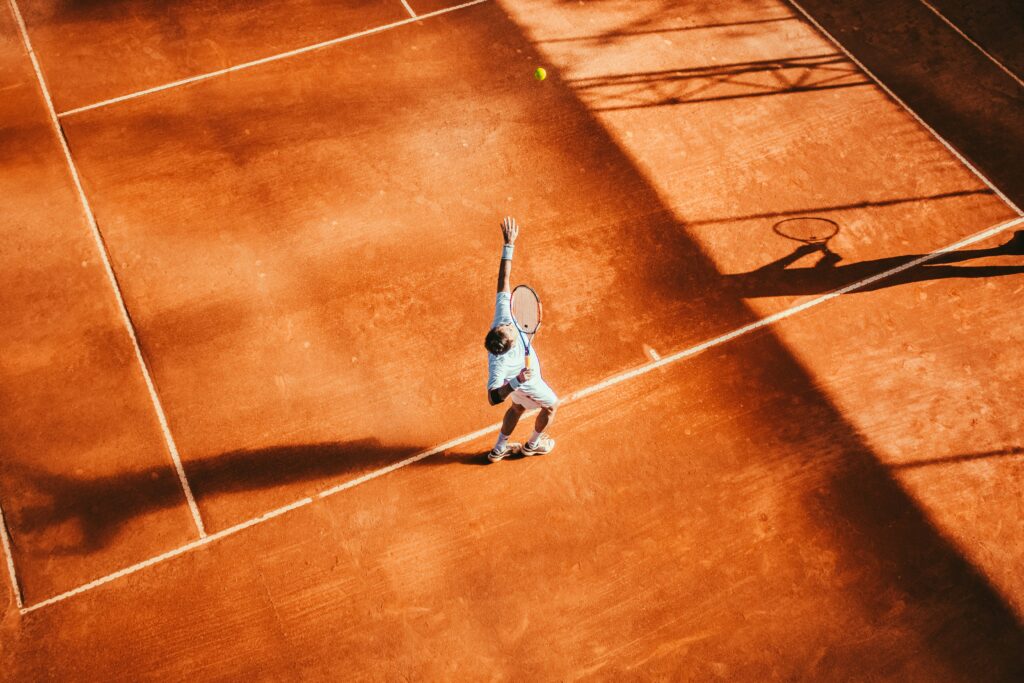Corentin Moutet: street-school tennis with a French rap edge

In an era when tennis is becoming increasingly standardized and players’ behavior meticulously polished, Corentin Moutet’s run to the semifinals of the ATP 500 tournament in Washington looked like a glitch in the system.
As the summer heat settled over the city, the Mubadala Citi DC Open lit up with an unexpected figure — 26-year-old Frenchman Corentin Moutet, a left-hander known not only for his fiery temper but also for his unorthodox, unpredictable game.
Entering the main draw as a lucky loser, he made a surprising run to the semifinals, defeating seeded player Daniil Medvedev along the way before falling 6–4, 6–3 to eventual champion Alex de Minaur of Australia.
Growing up outside the academy system
Moutet is one of the few players on tour who didn’t come through the traditional academy route. Until the age of 12, he trained on public courts in central Paris, learning the game instinctively by watching and playing with older players. This background shaped his creative, improvisational, and streetwise approach to tennis.
“I left my parents’ house in the center of Paris when I was 12 to practice in the south of France. It was a tough choice… I knew from the beginning tennis was for me, but I didn’t know just how difficult it would be to be away from home,” he said in an interview with BehindTheRacquet.com.
This path contrasts sharply with that of most players in his generation, who grew up inside structured training systems. Moutet is a product of urban tennis culture — and it shows in every aspect of his style.
A volatile temperament and a rap career
In the professional tennis world, emotional control is often seen as a virtue. Moutet stands out with his openness — and volatility that sometimes crosses the line of etiquette. His outbursts have led to several controversies — from a heated exchange with Alexander Bublik in Phoenix to an incident at Roland Garros, where he hit a ball toward the stands in protest.
Off court, Moutet channels his creative energy into music. He writes and performs rap tracks and doesn’t hide the fact that tennis is just one part of his identity.

“In everyday life I prefer to rap. But tennis is cool nonetheless. It’s a crazy sport, and again that’s how I make a living. Deep down, I find it more fun to rap,” he said in an interview with Tennis.com.
Interestingly, Moutet views tennis mainly as a financial base for his artistic pursuits. While hundreds of players outside the top 100 struggle to make ends meet or take side jobs just to stay on tour, Moutet’s situation is different: according to ATP data, he has already earned over $4.9 million in career prize money — enough to support both his tennis and his off-court ambitions.
The Moutet playing style
Moutet’s game is just as unorthodox as his background. At around 180 cm tall, he makes up for his lack of height with speed, feel, and tactical creativity. As a lefty, he’s not afraid to use the underarm serve — not just as a trick, but as a real weapon to disrupt opponents’ rhythm and mindset. It proved particularly effective at the 2023 Mallorca tournament.
He’s a master of variety: mixing spins, changing pace, throwing in drop shots — even behind-the-back winners. At Wimbledon 2024, these moments made him one of the most entertaining players to watch.
In many ways, he’s more like a streetballer in the NBA — full of tricks and instinct, but not always playing by the textbook. And that’s what makes him unpredictable for his opponents on the tennis court.
Tactical adaptability is another strength. In Washington 2025, even in a semifinal loss, Moutet showed he could mix defense and attack with maturity and clarity.
Achievements and vulnerabilities
By summer 2025, Moutet had reached a new career high — breaking into the ATP top 50 and ranking 46th as of July 28. His progress reflects a solid season that included a final on grass in Mallorca and a high-profile run in Washington.
Still, his game has weaknesses. He has played two ATP finals but has yet to win a title. Analysts also point to potential vulnerabilities: Moutet can struggle against physically aggressive players, and his ability to stay composed over long matches has been questioned.
Opponents often target his backhand, especially under pressure from net-rushing players. After their semifinal clash in Washington, Alex de Minaur openly said he deliberately went after Moutet’s slice to take control at the net — a tactic that worked well for the Australian.
The Frenchman may never become a fixture in the game’s top tier, but his presence on tour serves as a reminder: tennis doesn’t have to be uniform to be elite. For all his contradictions, players like Moutet add texture and unpredictability to the circuit — and that, in the long run, is what keeps the game compelling.
Cover photo: Corentin Moutet at the Australian Open 2020. By Rob Keating on Flickr.com




